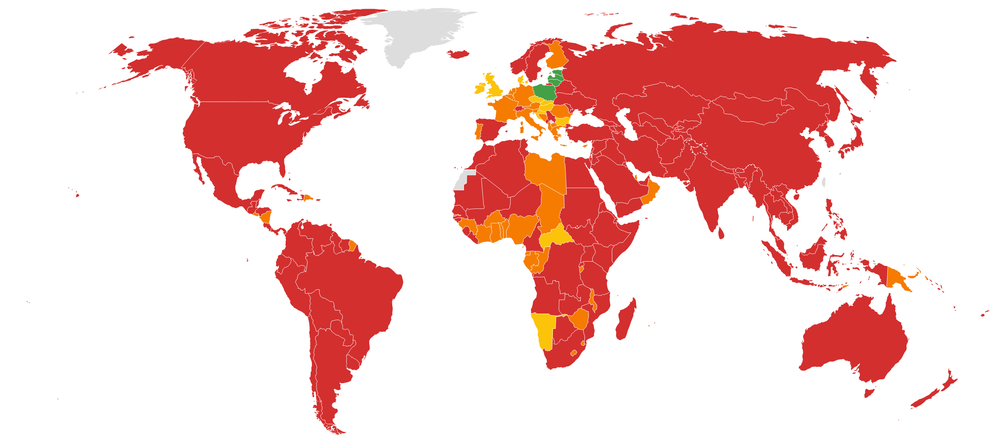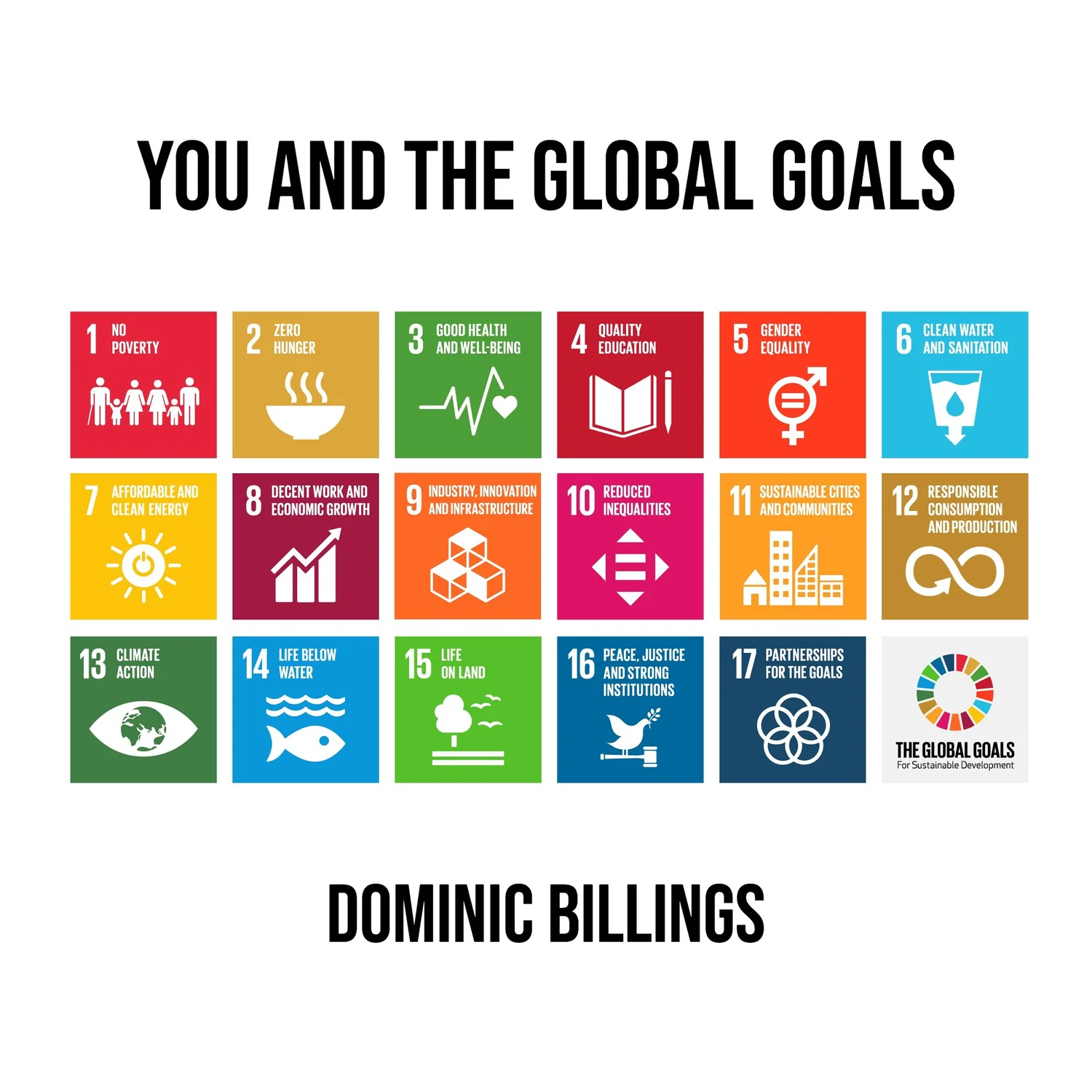SDG #16 - Peace, Justice and Strong Institutions
Description
sqs-block-image-figure
intrinsic
">
</figure>
<figure class="
sqs-block-image-figure
intrinsic
">

<figcaption class="image-caption-wrapper">
Dashboard map for 2022 SDG Index Goal #16 ratings. Data source: sdgindex.com
</figcaption>
</figure>
Homicides (per 100,000 population)
The 2030 aim is for the homicide rate to be below 0.3 per 100,000 population, excluding deaths in the context of armed conflict.
Summary: Don’t commit homicide.
Unsentenced detainees (% of prison population)
This measure considers those in the prison population in remand, awaiting trial on criminal charges about whether the legal system will acquit or convict them. Being in remand, from a legal standpoint, is different from imprisonment. Rather than a punishment from a conviction, it instead is a means to ensure the presence of the person charged at their eventual trial.
Yet in some countries, authorities can take liberties with how long they hold a detainee in detention, contrary to Article 9 of the Universal Declaration of Human Rights, which states: “no one shall be subjected to arbitrary arrest, detention or exile.” Unsentenced detainees include those detained or arrested with little evidence. This can also ignore due process, whereby the state must observe the legal rights of a citizen while charging and prosecuting a citizen. Often this entails the issuing of a warrant by a judge or magistrate, giving officers of the law the authority to carry out orders which otherwise may subvert the rights of the person. To be under arrest, with criminal charges placed by a law enforcement agency of a government, is different from a conviction. An arrest or detention may be necessary by the police upon passing a threshold of evidence for prosecutors to pursue its potential, otherwise the legal system exonerates the accused. Depending upon the context and jurisdiction, indefinite detention is contrary to international law, human rights agreements, and even the laws of war.
The 2030 aim for this indicator is for those unsentenced among a prison population to be 7% or less. If your line of work is part of the prison and judicial system in a country scoring red, you could consider seeking a new occupation, if you believe you're participating in a system perpetuating a contradiction of human rights and international law.
A reason for such a large part of prison populations held in remand could very well be due to backlogs in the courts, in which instance quitting one's job would be counterproductive. Is leaving detainees unsentenced intentional, or is there a genuine bottleneck in the flow of prosecutions due to lack of resources? If you sense the latter is closer to the truth, then you could consider retraining. You might parlay your experience from the prison side of the justice system to the judicial side, allowing prosecutions and sentencing to flow at a greater pace.
Each country scoring red in the 2022 Index is a developing country, where the state may be short of the resources to subsidise job retraining, making these suggestions more challenging. If you believe you’re perpetuating the high rate of detainees unsentenced in your country, I encourage you to excuse yourself from your present field of work.
Summary: For readers in countries off-track:
For employees of prisons or the court system, seek re-training to help clear the sentencing of detainees, or cease your current employment if you believe the prison or justice system is perpetuating indefinite detention.
For citizens, contact your government to voice your support for the reduction of unsentenced detainees to 7% or less of the prison population by 2030.
Population who feel safe walking alone at night in the city or area where they live (%)
This indicator is based upon a poll asking survey respondents, "Do you feel safe walking alone at night in the city or area where you live?" The 2030 aim is for those responding “Yes” to be 90%, with a red score resulting from less than 50% of a population answering “Yes”.
For readers from countries with major challenges for this indicator, we’re considering what you can do to assist others to feel safe walking alone at night. The first consideration is to refrain from engaging in violent or criminal behaviour, including vandalism or anti-social behaviour. The reality is the effect it has on the feeling of others’ sense of personal security in their community is adverse. The first task for readers from countries off-track for this measure is to cultivate prosocial behaviours.
Women will feel more unsafe at night than men, therefore males ought to be mindful when in proximity to women walking alone at night. It's a tricky balancing act, whereby creating distance and being proactive about the situation can sometimes seem a bit erratic, though it’s a good policy, nevertheless. Refrain from any chat, even under the guise of seeming more familiar. Maintain your behaviours and appearances highest in mind when walking at night, if you sense these may have an unwanted effect on others, which you have a civic duty to consider.
This is very much a social issue, which can take time to change, yet individuals can change now. You can acknowledge that to live alongside others in a peaceful community, it’s necessary to cultivate a sense of safety for others. All it takes is one person, affected by drugs or alcohol, or suffering mental illness, for which again, society has a responsibility for their care. We need to resource law enforcement, as well as ensure it's competent and free of corruption, which the limited resources of poorer countries could hamper. The main thing you can do is ensure you’re one less person posing a potential threat to others, instead radiating prosocial behaviour, fostering an aura of safety to others.
Summary: Ensure you adopt prosocial behaviours when walking at night.
Property rights (worst 1-7 best)
The data for this indicator is from a survey composed of questions to the respondents on property rights, including intellectual property. A score of 1 is the worst possible answer, and 7 the best.
Article 17 of the Universal Declaration of Human Rights stipulates:
Everyone has the right to own property alone as well as in association with others.
No one shall be arbitrarily deprived of his property.
The government has the task of upholding property rights, via the courts, as well as law enforcement. As such, there’s little use attempting to assign individual responsibility for a task belonging to governments.
What if you live in a country with major challenges ahead to reach the 2030 aim of scoring 6.3 in this indicator’s property rights survey? Take the time to find out what the property rights are in your country, which may be less than straightforward depending on your access to the internet, or knowing where to find such information. If you can find out which government department deals with land registrations, this would be a good start. But it’s possible that accessing the necessary information will be difficult for you, either in dealing with the government to proffer the desired information, or requiring a trip to visit a government ministry in the city.
In your own attempt to uphold your property rights, if the government response turns menacing, please exercise caution.
Summary: For readers in countries off-track, contact your government to express your desire for the strengthening of property rights.
Birth registrations with civil authority (% of children under 5)
This measure aims for 100% of children under five-years-old to have their births registered with the national civil authority. Most governments have systems in place for civil registration for certificates of birth, marriage, and death, ensuring recognition of official citizenship and residency. With this, comes the rights and access to social services.
The correlation with LDCs and lack of birth registration may reflect the capacity of some country’s governments to record births. Remote access to s





